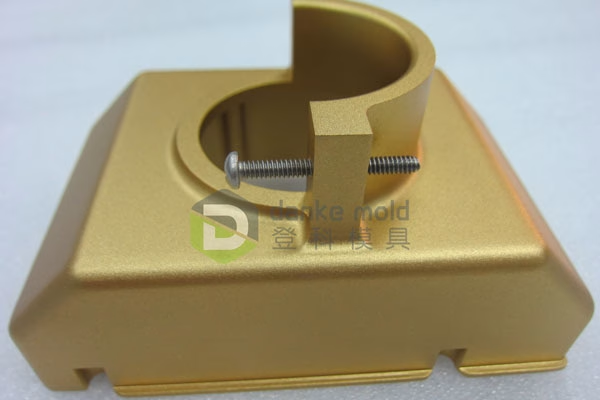Few technologies like Computer Numerical Control (CNC) machining have sparked a revolution in manufacturing. At its core, CNC machining involves using computer-controlled tools to make precise cuts and shapes in various materials. Gone are the days of relying solely on manual labor and imprecise hand tools.
With CNC machining, complex designs are brought to life with unparalleled accuracy and speed. This isn’t just about improving existing processes; it’s about unlocking a new realm of possibilities. CNC machining is transforming industries by increasing efficiency, improving precision, and opening the door to innovative designs and products that were previously unimaginable.
The Impact of CNC Machining on Manufacturing
The impact of CNC machining on the manufacturing landscape is undeniable. First and foremost, it has drastically enhanced precision and accuracy. By eliminating human error, CNC machines consistently produce high-quality parts with intricate details and complex geometries that were once difficult or impossible to achieve.
Furthermore, CNC machining has revolutionized efficiency and productivity. With faster production times, reduced waste due to precise cuts, and the ability to operate around the clock, manufacturers can meet demands more swiftly and cost-effectively.
CNC machining also leads to significant cost reduction. By optimizing material usage and reducing the need for skilled labor in repetitive tasks, manufacturers can allocate resources more strategically. Additionally, the ease of modifying designs and the ability to create rapid prototypes enable greater customization and flexibility, making it easier to adapt to evolving market needs and customer preferences.

CNC brass
Diverse Applications of CNC Machining
The versatility of CNC machining is evident in its diverse applications across a wide range of industries.
In the aerospace sector, CNC machines craft complex engine parts with intricate geometries, lightweight yet durable structural components, and parts that meet stringent tolerances for safety and performance.
The automotive industry relies on CNC machining to create custom parts, rapidly prototype new models, and manufacture tooling and molds for mass production.
In the medical field, CNC machining plays a crucial role in creating personalized prosthetics and implants that precisely fit individual patients and crafting surgical tools and intricate medical devices.
The electronics industry depends on CNC machining to produce precision circuit boards with intricate traces, enclosures that protect delicate components, and custom connectors for specialized applications.
CNC machining benefits even consumer goods, enabling the creation of intricate jewelry designs, custom-made furniture pieces with unique details, and high-performance sporting equipment.
Beyond these prominent sectors, CNC machining’s versatility extends to construction, where it’s used for fabricating structural elements and architectural details, the energy sector for producing components for turbines and power generation equipment, and agriculture for creating specialized tools and machinery. This adaptability underscores the transformative power of CNC machining in shaping the modern industrial landscape.
The Future of CNC Machining
The future of CNC machining is bright, with emerging trends like multi-axis machining enabling even more complex geometries, AI integration optimizing processes, and the combination with 3D printing opening up new avenues for rapid prototyping and custom manufacturing. This continued growth and innovation will undoubtedly revolutionize more industries in the future.
In conclusion, CNC machining’s impact on precision, efficiency, and versatility across diverse industries is undeniable. It’s a driving force in modern manufacturing, leading to unprecedented innovation and progress. For those looking to leverage the power of CNC machining, exploring options like those offered by Danke Mold can be a great starting point to turn your design concepts into reality.
